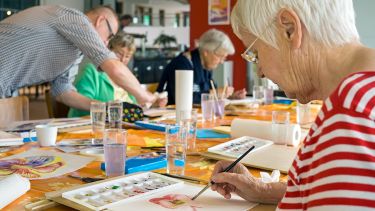Care ‘in’ and ‘out’ of place: towards sustainable wellbeing in Mobile and Diverse contexts

Care ‘In’ and ‘Out of’ Place is a Work Package led by Dr Majella Kilkey and Professor Louise Ryan, on a the large ESRC grant Sustainable Care: Connecting People and Systems, running between 2017 and 2021. The Work Package examines migrants’ experiences of care in and out of place, focusing on three groups: ageing migrants in the UK; British retirement migrants in Spain; and migrant care workers in the UK.
Migration and mobility are transforming UK caring contexts. Superdiversification is challenging care arrangements as people arrive from places with differing expectations of care. This team’s work addresses the gap in knowledge about the (often neglected) needs and experiences of newer groups. Although the UK’s paid care workforce is heavily reliant on migrants, little is known about how they reconcile their paid care work with familial care responsibilities (especially for older family members). Migration from the UK, especially international retirement migration, means more British people ageing overseas, with growing, unplanned for, care needs and dispersed networks. These care needs of those implicated in relationships between migration and ageing raise particular challenges for sustainable care and wellbeing, including in the context of Brexit.
The Care ‘In’ and ‘Out of’ Place team, led by Dr Majella Kilkey and Professor Louise Ryan, comprises Magdolna Lorinc, Dr Agnes Turnpenny, Dr Kelly Hall, Dr Shereen Hussein and PhD student Obert Tawodzera.
The Work Packages’ main research questions are:
- How are migrants/non-migrant family members involved in transnational/multi-locational networks of care?
- How do migrant care workers reconcile paid work with familial care responsibilities, both locally and transnationally?
- How is distant care best mediated by new technologies?
- How does the intersectionality of gender, class, ethnicity, linguistic ability, religion and migrant status impact access to and experiences of care?
